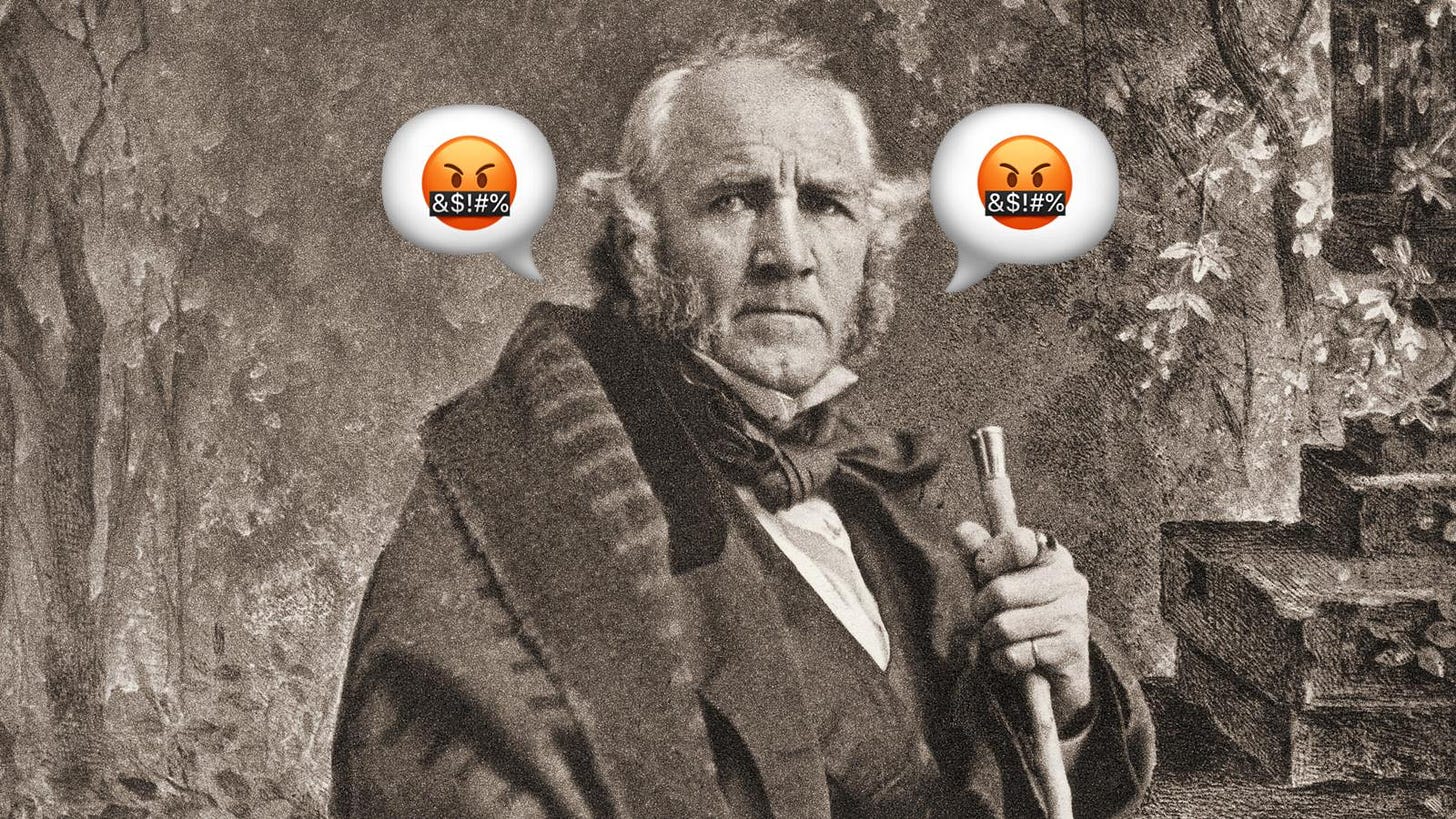
When you insult someone, you are stooping to conquer. If it’s true that the opposite of love is not hate but indifference, simply ignoring your target is the best course. Turning the other cheek is far easier than turning a phrase.
Also, you might end up taking an expensive flight to Akron to tell Reilly that the jerk store called and they’re running out of him.
But if you really, really must zing someone, aim for efficiency. Don’t linger, don’t repeat yourself, and don’t start something you can’t finish.
The modern masters of the creative insult may be the writers of HBO’s late, great series VEEP. They plumbed new depths of inspired vulgarity with the character of Jonah Ryan, who was as tall as he was shallow. “The Jonah insults are probably the most math-y of the insults [we write],” writer David Mandel told Vulture, “because there we are using insulting words hung around the frame of something that’s large or tall or big.”
Hence: Icadadbod Crane, undercooked pool noodle, overcooked pool noodle, Jimpanzee, Spewbacca, world’s biggest single-celled organism, Hepatitis J, melted PlayDoh on a flagpole, shaved Sasquatch, Congressman Slenderman, and — actor Timothy Simons’ gentle favourite — cloud botherer.
Of course, all those insults exist in the show’s universe, which is just as dystopian as ours but much more articulate. In our current world, the surest path to an efficient insult may be the double insult. By the most obvious definition, this is an insult that slaps them twice in the same sentence. For example:
“If only he’d wash his neck, I’d wring it.” — John Sparrow
“He has all the characteristics of a dog, except loyalty.” — Sam Houston, pictured above.
“She is a peacock in everything but beauty.” — Oscar Wilde
But there’s another definition of the double insult that’s even more efficient. The biologist Desmond Morris, who studies homo sapiens as just another species of ape, describes it as follows:
When we laugh directly at someone, we throw them a double insult. We are saying with our directed laugh: ‘You are alarmingly strange, but — what a relief — we do not need to take you seriously.’ … Ridicule displays hostility and belittles the victims at the same time.
The key, then, is to combine hate and indifference: Don’t spend precious energy insulting a worthless target, as it suggests you take them seriously. Economy of scorn is what you’re after. It’s what theatre critic Walter Kerr captured when he described an actor as having “delusions of adequacy” — the same number of words as saying “delusional and inadequate” but infinitely more poetic.
In the present day, it’s hard to top Benjamin Wittes’ four-word evisceration of the Trump administration’s refugee policy: “Malevolence tempered by incompetence.” Someone ought to stitch that on a red hat.
Quick quips; lightning
“I wouldn’t join any club that would have me as a member.” — Groucho Marx
The ultimate double insult folds back on itself, as both club and Marx end up on the same level.
“I regard you with an indifference closely bordering on aversion.” — Robert Louis Stevenson
This line from The New Arabian Nights perfectly captures the scornful mood.
“The problem with some men is that when they aren’t drunk, they’re sober” — William Butler Yeats
If you can make both halves of the double insult add up to the whole person, your work is done.
I’m delighted to have you as a member of the club that read the tenth issue of Get Wit Quick, the compendium of pool noodle recipes. Some people who were gifted my book Elements of Wit: Mastering The Art of Being Interesting thought it was an insult! It wasn’t! Or was it? In the same spirit, do forward this newsletter to your foes.



